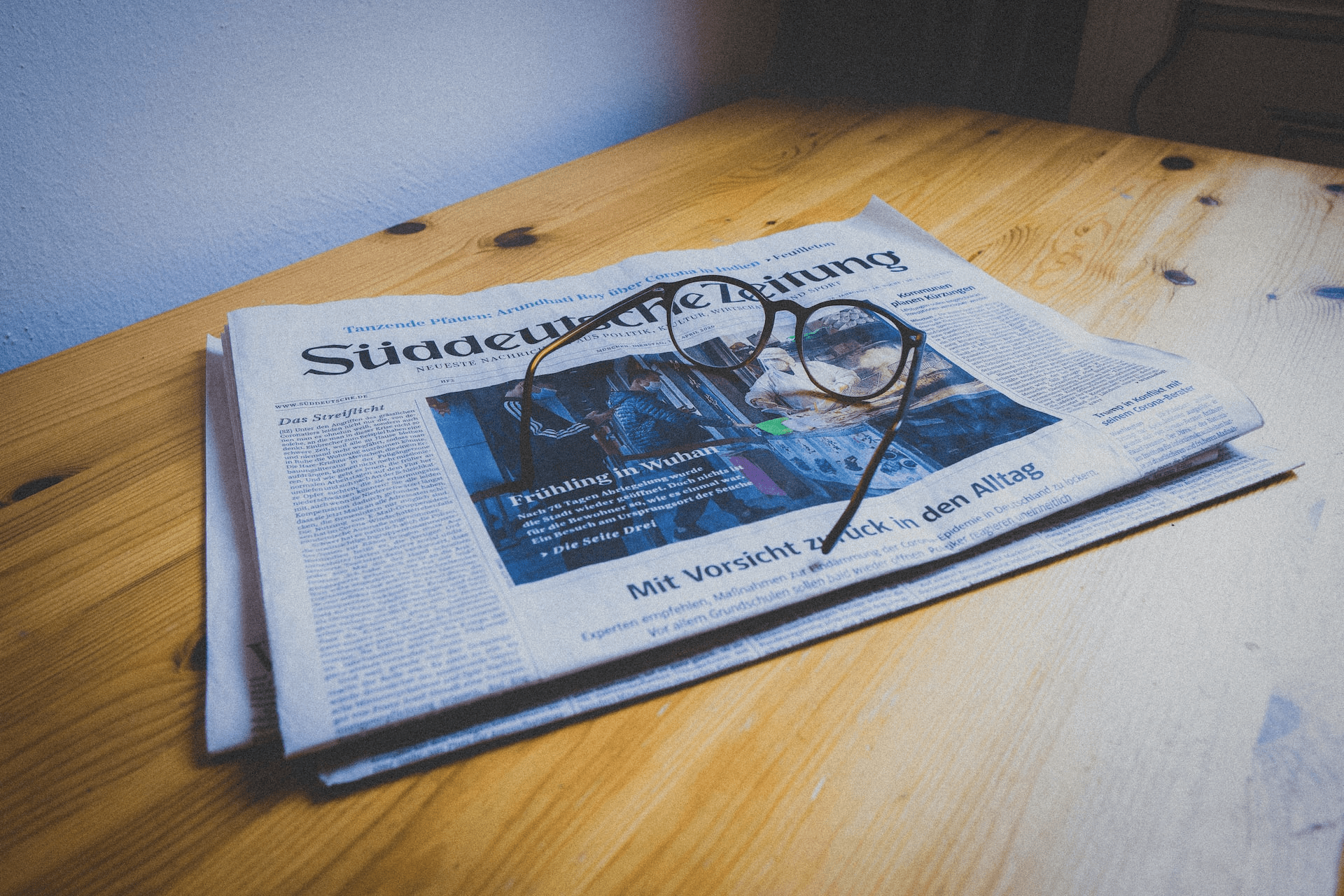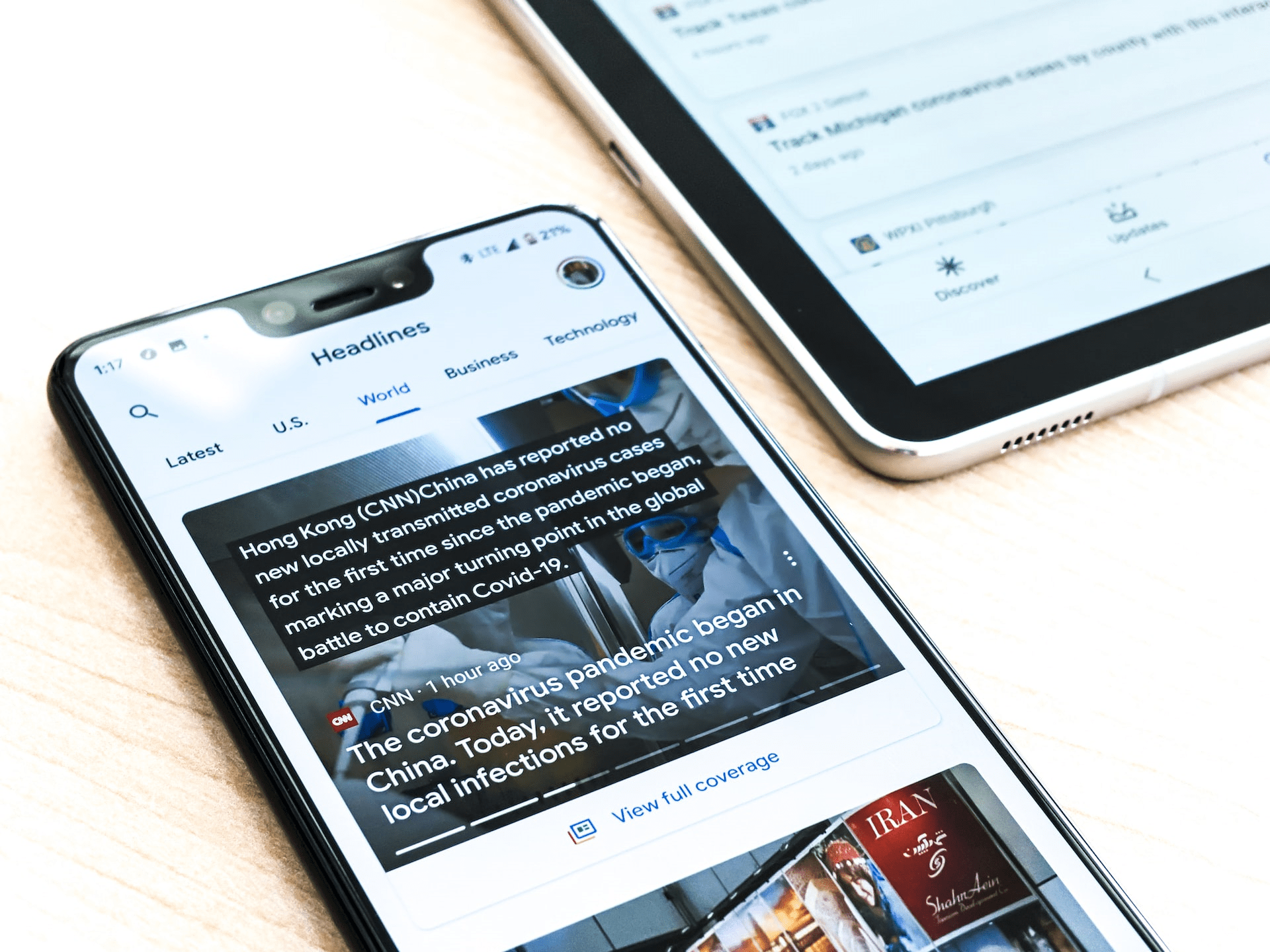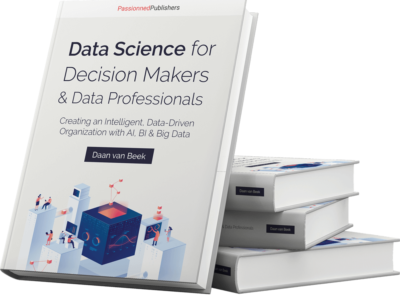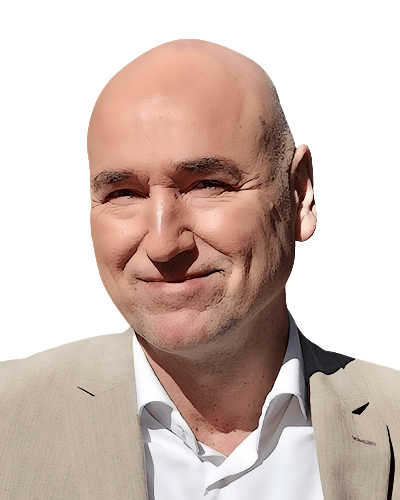Sharpen yourself with a data-driven, critical basic attitude
Fake it until you make it. Thanks to Photoshop and smart filters, we can create our own, relatively harmless made-up world. Fake news, on the other hand, are different. By combining text, images, and sound with artificial intelligence, you can do fun things, but you can also mix a poisonous cocktail. A cocktail that affects our cherished Western democracy and breaks down the social cohesion in our society. Everyone should therefore be super alert to all kinds of fake news and deepfakes. But how do you avoid getting caught up in a web of stories? Resilience to an unhealthy narrative starts with developing a critical mind. Passionned Group’s always positive-critical thinking tank sat down and came up with 7 thoughtful considerations with which you can become media-wise and data literate.
The big themes of current times
Local news is often easy to check by doing your own research but interpreting world news from a distance is a lot more difficult. You are (largely) dependent on the media. Specifically, we are talking about the big stories and themes of our time. According to Passionned’s CEO, Daan van Beek, you should now “by default” read them with a healthy dose of suspicion. Especially when major interests are at stake, and that is almost always the case. Whether it’s war, nitrogen, virus waves, or “just” the economy, always stay critical but positive.
Now, what exactly is a “narrative”? How can you recognize a narrative and use it to improve your organization and information policy?
What is a narrative?

As a noun, narrative means “story”. According to Merriam-Webster’s Dictionary a narrative is a way of presenting or understanding a situation or series of events that reflects and promotes a particular point of view or set of values. A narrative reflects ideas and opinions, cast in the form of a story with which the narrator wants to convince others. A narrative can therefore also be a constructed version of the truth, a story that does not necessarily have to be based on facts. An example is The American Dream, a beautiful story that no longer corresponds to reality.
A narrative is not by definition harmful. Psychologists, for example, use it as a tool to get patients to tell stories about themselves. With these reconstructed life stories they work on their self-image and mental recovery.
You get banned just like that…
Colleague Jack Esselink, an AI evangelist, is also concerned about the current zeitgeist. According to him, there is hardly any room left for dissenting opinions in the social debate. Critical scientists, hospital directors, and dissenting doctors must (nowadays) be careful of their words. If they don’t, they will be permanently or temporarily banned from social media or their posts will be removed. ‘That even applies to a renowned Harvard scientist like Martin Kulldorff’, Van Beek agrees.
Esselink wrote his master’s thesis on deepfakes and extreme beliefs from an ethical perspective. ‘Predictably, middle-of-the-road news is not of interest to the media, but extreme opinions are. That is precisely why we are confronted with this and polarization arises’, he notes. This is reinforced by the algorithms used by social media.
What is fake news?
Esselink defines fake news as news that is factually incorrect and based on opinions and/or unsound material on which there is no consensus.
What is a deepfake?
A deepfake, as the term implies, goes a step further. A creator of a deepfake uses artificial intelligence to create synthetic media, fake content. This concerns artificially created media expressions, such as manipulated photos, videos, fictitious texts, or edited sound fragments.
7 considerations to survive in a fake world
So far, we have some definitions. But how can managers, employees, and unsuspecting citizens arm themselves against this kind of manipulation? After all, decision-making in organizations is partly based on external market signals and on “sounds from society”, which can therefore be heavily manipulated. We came up with 7 factors that you should consider when reading any type of news:

-
- Adopt a critical, analytical attitude. Always check who the sender of a message is and who else might have an interest in the news. Formulate your own hypothesis but reject it immediately if you cannot find direct evidence for it. Indeed, this takes courage, but it prevents you from digging in or retreating into your own bubble. Things that happen at a local level may be easier to monitor. The stories that take place on a global scale are much harder to fathom and check, because of the complexity and because the stakes are much higher. The same is true of the issues at play in the executive branch. Propaganda is of course timeless and takes place on all continents and at all levels. But assume for the sake of convenience that the closer you get to the top of an organization or government, the more alert you must be to manipulated information. You can protect yourself against this by not following everything closely 24×7, for example. Besides: every device has a pause or stop button.
- Think data. Reject all stories, reports, and presentations that are not based on hard data. And if you have the slightest doubt about the accuracy of a news fact or story, do your own research. Don’t take anything for granted and be aware of selective browsing in data (cherry-picking). An inquiring mind always helps to protect yourself against disinformation. Furthermore, always remain curious and ask yourself: what is the real situation? In addition, always check the quality of the data, dashboards, and the trustworthiness of KPIs. Show your willingness to invest in this as well. After all, poor data quality and wrong KPIs can also lead to misinformation or disinformation. Read more about how you can set up real KPIs here.
- Follow the big tech critically. Tech companies such as Twitter, Google, Microsoft, Amazon, Facebook, and LinkedIn are certainly not the most suitable parties to filter the news for you because they have commercial interests. People forget quickly, but the Cambridge Analytica scandal of 2016 was just the tip of the iceberg. Big tech companies want to collect as much data as possible, keep visitors on the platform as long as possible, and sell lots of ads. The same will undoubtedly also be true for the Metaverse, a new virtual world with avatars, also known as Internet 2.0, which is now being fronted to us by Facebook.
- Invest in media literacy and data literacy. Start educating your children early to make them aware of the media and the role of so-called influencers in spreading information, which can be truthful or not. Explain in simple terms what disinformation is and how damaging it is. Data literacy is one of the keys to making yourself and your colleagues resilient and able to stand tall in this fake world. And you can’t start early enough. After all, managers increasingly expect their employees to be able to back up their decisions with data. At the same time, only 11% of those same employees feel capable of reading, analyzing, and clearly communicating data (source: Qlik’s Data Literacy Report, 2022). So, there is still a world to be won here.
- Detach yourself from the Western sense of superiority. Much of the current thinking is based on a misguided Western sense of superiority. When you can let go of this conviction, a more realistic world view and more understanding for other cultures, norms, values, and traditions will automatically arise. The American-dominated platform economy will then become more balanced and the Far East or Africa will no longer be a low-wage area or a dumping ground for discarded Western consumer products. Algorithms are also still too often developed on the basis of Western stereotypes and prejudices. An assessment framework or guideline is desirable. With the help of data storytelling, organizations can work on a strong corporate culture in a positive way. By embracing data-driven working, you will be guided only by the data and not by (false) sentiments. This makes it easier to recognize wrong or unsubstantiated stories. So if the data says turn left, then you turn left, regardless of what the prime minister or leader says.
- Be aware of your own biases. Everyone sometimes suffers from his or her own prejudices, errors, or biases. See, for example, our blog about the 20 biases that can play tricks on you in the pursuit of pure decision-making. The knife cuts both ways here. Algorithms can filter out human biases and, conversely, people can overrule algorithms if they derail or can no longer be explained.
- Don’t be surprised by the lawmakers. Legislators in Brussels and national governments tend to go too far in their legislation when it comes to fighting fake news. Moreover, politics “by design” is not data-driven, but rather opinion-driven. Even now, much is expected from the so-called Artificial Intelligence Act, a European law that should regulate artificial intelligence. But the danger of censorship and manipulation is always lurking. After all, it was the Council of the European Union who forced internet providers to block Russian Today and Sputnik right after the Russian invasion of Ukraine. Outright censorship according to the European Journalist Federation EFS. Net neutrality is an important right.
Passioned’s CEO, Daan van Beek, has always been alert to all kinds of (data) manipulation. Once, in the role of BI manager, he was asked whether he would like to adjust the definition of the market share, which suited the management at that time. In his three-day Business Intelligence training, he now pays standard attention to the phenomenon of fake news. Because the current zeitgeist in combination with advanced technology really worries him. Where will power lie next?
Deepfakes: some examples
 Colleague Jack Esselink is also concerned. A video featuring Speaker of the House of Representatives Nancy Pelosi went viral because it looked like she was drunk. In reality, the sound of the video was played in slow motion. In the Netherlands, a deepfake appeared with Prime Minister Mark Rutte delivering a made-up climate message. The sender of this deepfake (in Dutch) was the online news platform De Correspondent, who, by the way, was transparent about the initiative and their intentions (to contribute to a better climate).
Colleague Jack Esselink is also concerned. A video featuring Speaker of the House of Representatives Nancy Pelosi went viral because it looked like she was drunk. In reality, the sound of the video was played in slow motion. In the Netherlands, a deepfake appeared with Prime Minister Mark Rutte delivering a made-up climate message. The sender of this deepfake (in Dutch) was the online news platform De Correspondent, who, by the way, was transparent about the initiative and their intentions (to contribute to a better climate).
These separate incidents prove that manipulating text, images, and sound is becoming increasingly easy thanks to new technology such as artificial intelligence. Still, according to Van Beek and Esselink, deepfakes are relatively easy to detect and unmask, thanks in part to the same wretched algorithms used to create them. So, fake news or deepfakes can be fought with algorithms, although not everyone thinks that’s a clever idea. In any case, broaching major social issues nowadays inevitably leads to miscommunication, disinformation, and controversy.
Copernicus’ wet dream
We live in a fake world,’ says Van Beek. Within an increasingly narrow framework of thought, the top or the majority determines what we should think. If you go against general opinion, you are banned, or canceled. The speed with which you can send a new story into the world is phenomenal and at the same time frightening. Copernicus could only dream of such rapid adaptation during the science revolution. Sentiment can also turn 180 degrees at once. When Amnesty International reports critically on Ukraine, the whole international community is angry and confused.’
We live in a fake world, within an increasingly narrow framework of thought the top or the majority determines what we should think. If you go against general opinion, you are banned, or canceled.
Van Beek continues: ‘If you’re not careful we’ll slide towards an Orwellian society. All the ingredients are there. Moreover, it is becoming increasingly difficult to be an open-minded person. People must remain human and everyone must be able to believe what he wants. You would almost long for the hippie era. When the big tech companies and the government join forces and start shifting responsibilities, it strikes at the heart of our democracy. The same goes for agreements made with Internet service providers. Net neutrality is still a great good that needs to be protected.’
The Data Science book for Decision Makers & Data Professionals The author of this book describes the path to creating a mature, intelligent, and data-driven organization. He shares his innovative, refreshing perspective on (big) data, KPIs, dashboards, Artificial Intelligence (AI), fake news, and decision-making. He also reveals how managers and data professionals can make better and faster decisions using AI and Business Intelligence. Data quality is more crucial than ever. Organizations can’t make reliable predictions using low-quality data. As the amount of available data increases, people have to adjust their worldviews more and more.
The author of this book describes the path to creating a mature, intelligent, and data-driven organization. He shares his innovative, refreshing perspective on (big) data, KPIs, dashboards, Artificial Intelligence (AI), fake news, and decision-making. He also reveals how managers and data professionals can make better and faster decisions using AI and Business Intelligence. Data quality is more crucial than ever. Organizations can’t make reliable predictions using low-quality data. As the amount of available data increases, people have to adjust their worldviews more and more.
From fake news to deepfakes
Deepfakes are not necessarily objectionable, according to Esselink. For a video to combat the global malaria epidemic, former professional soccer player David Beckham spoke his message in nine different languages. Thanks to dubbing, the message still came across as credible, and costs were saved. Van Beek: ‘Selectively taking something from a press release (or dataset) and putting it at the top as a big, unsubtle headline is, in my view, also a form of fake news or framing. Especially if you bring the news piecemeal and leave out the broader context. Another much more serious example is the anti-dating or manipulation of war photos. As a citizen, you are completely misled. But citizens (even Gerrit Hiemstra) can also consciously or unconsciously spread fake news and/or manipulated photos, as a recent discussion about whether or not the French Loire River is completely dry shows.’
The dubious role of Twitter and Facebook
 Van Beek: ‘When it comes to the question of “whether or not to vaccinate children”, for example, it is not up to Twitter to put up red flags to warn the users about allegedly misleading information or disinformation. In fact, the chances of them missing the mark and disqualifying correct information from a reliable sender are very high. See the example of the Danish Health Authority where Twitter wrongly qualified a message as misleading information. Nor is it the job of Facebook or Twitter to ensure that elections are conducted in an orderly manner anywhere in the world. Meanwhile, Twitter did elaborate in a campaign plan (Our Civic Integrity Policy) on how they think the U.S. midterm elections should go. Twitter as a “logical extension” of a government, behold the ruin of what was once an open discussion platform.’ And recently Mark Zuckerberg reluctantly admitted that Facebook censored a controversial post about the US president’s son (the Hunter Biden laptop story) based on a (general) alert from the FBI. This shows that social media maintain close contact with the responsible governments and apparently follow instructions from those same governments.’
Van Beek: ‘When it comes to the question of “whether or not to vaccinate children”, for example, it is not up to Twitter to put up red flags to warn the users about allegedly misleading information or disinformation. In fact, the chances of them missing the mark and disqualifying correct information from a reliable sender are very high. See the example of the Danish Health Authority where Twitter wrongly qualified a message as misleading information. Nor is it the job of Facebook or Twitter to ensure that elections are conducted in an orderly manner anywhere in the world. Meanwhile, Twitter did elaborate in a campaign plan (Our Civic Integrity Policy) on how they think the U.S. midterm elections should go. Twitter as a “logical extension” of a government, behold the ruin of what was once an open discussion platform.’ And recently Mark Zuckerberg reluctantly admitted that Facebook censored a controversial post about the US president’s son (the Hunter Biden laptop story) based on a (general) alert from the FBI. This shows that social media maintain close contact with the responsible governments and apparently follow instructions from those same governments.’
Governments themselves are active on social media platforms. They follow their citizens. Moreover, they pay for sponsored posts, even in the case of non-adopted policies, according to the American Bar Association. So, the government as a filter of disinformation is also out of the question, because it has its own agenda and priorities. That is not to say that governments could not have a modest directorial role in the fight against fake news in general.
Van Beek: ‘Can we then blindly trust what the media present to us? No, not by definition. Who dares to be critical anymore? The Guardian, for example, is financed by the Bill & Melinda Gates Foundation, a non-independent party with certain interests. The amount involved is almost $3.5 million. Journalism is printing what someone else does not want printed: everything else is public relations, George Orwell once stated.’
Esselink: Scientists and non-profit organizations are often sponsored by donors who naturally have their own agenda and private interests. As long as you communicate this transparently, this is not a problem as far as I am concerned. This does require sharp, critical, and attentive citizens. Learning these skills makes you media savvy.’
In short: filtering and critically evaluating any kind of information will have to be done by the people themselves. The solution lies with the people themselves, each individual.’ Van Beek predicted that thinking objectively will become increasingly important in his ‘Data Science Book’.
Searching for a new balance
We live in a fragmented, Wild West-like world, according to Esselink. People have difficulty absorbing all the news: information overload is the result. What is a fact for one person is a fable for another. Moreover, the ethical bar is being raised higher and higher. Everyone is constantly measuring each other. Forgiveness as a Christian value has been completely snowed under. The objective truth does not exist; there is still such a thing as shared realities.
Discordance of opinions
 Esselink: ‘There is a sharply declining trust in those in power and authorities. NIAID Director Anthony S. Fauci, M.D., was once an untouchable authority and the Dutch RIVM was once a well-respected institute. The traditional media are also under fire. A cacophony of noise is being produced. Goffman’s dramaturgical model of social life (“the world as a theater, in which people present themselves frontstage and backstage”) is still valid.’ Yet, according to Esselink, we will have to find a new balance. This will not happen without a struggle. Detecting deepfakes, despite the so-called “liar’s dividend,” where politicians try to get away with dismissing something as fake news, is probably the easiest part. What kind of society do we as individuals and as organizations actually want to live in? How do we maintain conversation with each other? What is the right tone of voice in the social debate? And how much empathy can you still muster for dissidents and obstructionists? These are urgent questions.
Esselink: ‘There is a sharply declining trust in those in power and authorities. NIAID Director Anthony S. Fauci, M.D., was once an untouchable authority and the Dutch RIVM was once a well-respected institute. The traditional media are also under fire. A cacophony of noise is being produced. Goffman’s dramaturgical model of social life (“the world as a theater, in which people present themselves frontstage and backstage”) is still valid.’ Yet, according to Esselink, we will have to find a new balance. This will not happen without a struggle. Detecting deepfakes, despite the so-called “liar’s dividend,” where politicians try to get away with dismissing something as fake news, is probably the easiest part. What kind of society do we as individuals and as organizations actually want to live in? How do we maintain conversation with each other? What is the right tone of voice in the social debate? And how much empathy can you still muster for dissidents and obstructionists? These are urgent questions.
Van Beek concurs. Also look outside the beaten path, which can make you think. Regularly ask yourself, “Does the other person have a point?” as the former CEO of the Dutch training institute De Baak Harry Starren rightly states. According to Van Beek, organizations today must have a license to operate, a kind of mandate that they must repeatedly earn from stakeholders through performance in various social fields. You can also ask more of employees than merely carrying out the assigned tasks. Every employee should be involved in thinking about how he or she can improve processes and contribute to a better, freer world.
Conclusions
Fake news are made up of ideas and beliefs that are cast in the form of a story with which the storyteller wants to convince others. These stories are usually colored by political beliefs and marketing considerations. In order to survive in a fake world, in which such stories follow each other in rapid succession, managers, employees, and citizens can no longer blindly trust politicians, legislators, institutions, or algorithms. They will have to change themselves and find their way around on the basis of a critical attitude and reliable, validated data.
Fake news and deepfakes have more negative consequences for organizations and citizens than you might think. As mentioned, they deeply affect interpersonal relationships and therefore the performance of organizations. One of the next blogs will therefore focus on the dehumanization and desocialization that are also increasingly present in the workplace.



